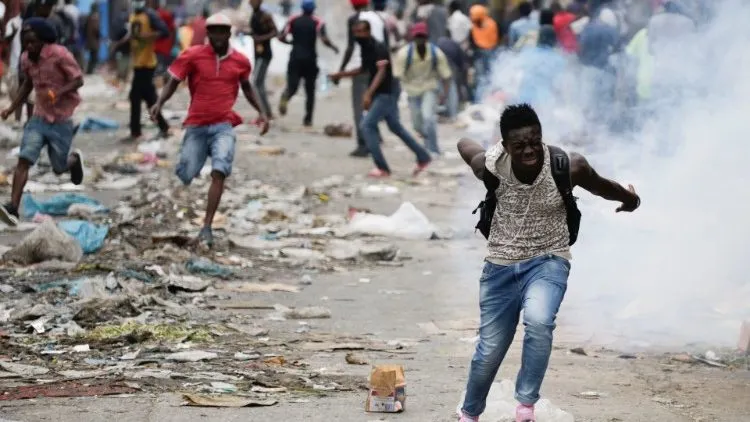The Haitian capital, Port-au-Prince, is now recognized as the most violent city on the planet in 2024.
According to the annual assessment by the Citizen Council for Public Security and Criminal Justice, released on Wednesday, February 19, the city has recorded an alarming homicide rate of 139.3 murders per 100,000 residents. This figure marks a significant increase compared to 2023 (117 murders per 100,000 residents) and a surge in violence since 2022 (55 murders per 100,000 residents).
Port-au-Prince is currently dominated by criminal gangs, which control 85% of the urban area. The assassination of President Jovenel Moïse in 2021 created a political and administrative vacuum, allowing armed groups to expand their influence. In this context, law enforcement agencies, underfunded and understaffed, have proven ineffective in curbing the rise in crime.
Residents live in a constant state of fear, facing kidnappings, executions, and robberies carried out by these gangs. Urban infrastructure is deteriorating, government services are virtually nonexistent, and the national economy is collapsing. Violence, food insecurity, and a growing humanitarian crisis define the daily lives of Haitians.
While Haiti is severely affected, other cities in the Americas also rank among the most dangerous. Colima, Mexico, which topped the list in 2023, has fallen to second place. The neighboring city of Manzanillo ranks fourth, illustrating the persistent impact of cartel wars. Mexico alone accounts for 20 of the 50 most violent cities in the world, with 7 in the top 10.
Unlike Mexico, where the state maintains a presence despite corruption and cartel conflicts, Haiti finds itself in a complete deadlock. The absence of an effective government and the collapse of institutions make any progress difficult, if not impossible, without significant external assistance.
As Port-au-Prince holds this grim record, the country’s future appears more uncertain than ever. Haitians struggle to survive in an atmosphere of perpetual fear, while the international community struggles to find effective solutions. Without a firm commitment from local authorities and substantial support from international organizations, Haiti risks sinking further into chaos and despair.







